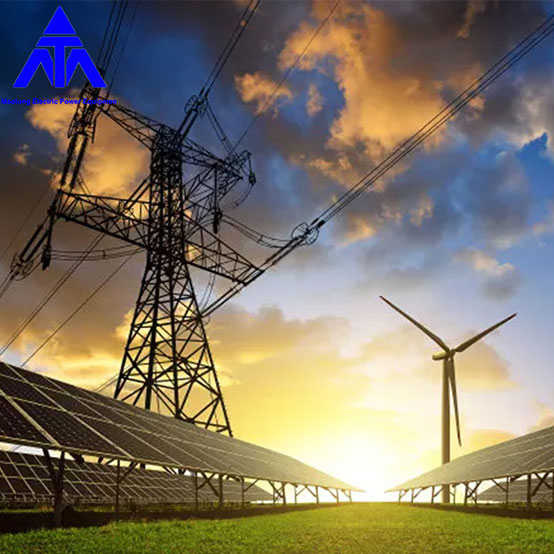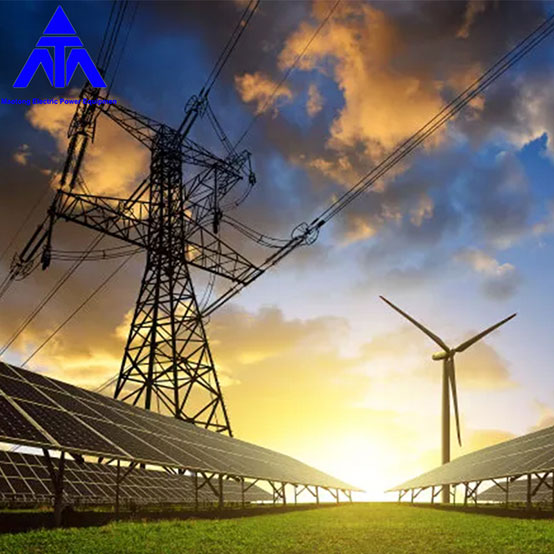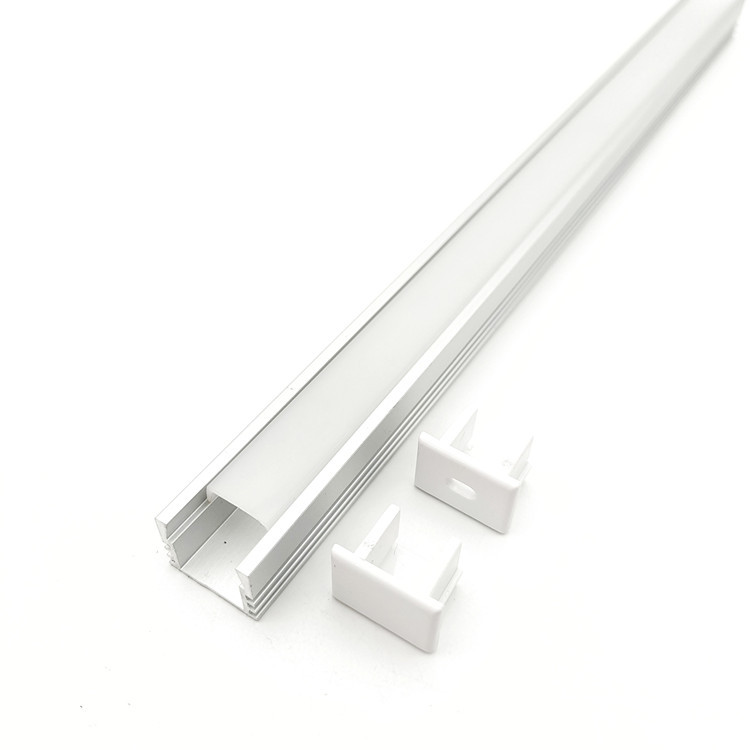220KV Steel Pipe Tower
A 220kV steel pipe tower is a type of electrical transmission tower designed to support high-voltage power transmission lines operating at 220,000 volts (220kV) or similar voltage levels. These towers are a crucial part of the electrical grid infrastructure, facilitating the efficient and reliable t......
Send Inquiry
Product Description
A 220kV steel pipe tower is a type of electrical transmission tower designed to support high-voltage power transmission lines operating at 220,000 volts (220kV) or similar voltage levels. These towers are a crucial part of the electrical grid infrastructure, facilitating the efficient and reliable transmission of electricity over long distances. Here are some key characteristics and uses of 220kV steel pipe towers:
1. Voltage Level: The "220kV" in the name refers to the voltage rating of the power lines that the tower supports. These transmission lines typically operate at 220,000 volts, which is considered a high voltage level in the context of electrical power transmission.
2. Structure: A 220kV steel pipe tower is constructed using steel pipes or tubes, which are typically cylindrical in shape. The tower structure consists of vertical and horizontal members, with cross arms and insulators for supporting the power lines.
3. Height: The height of a 220kV steel pipe tower can vary depending on the terrain and the specific requirements of the transmission line. These towers are designed to span across various types of landscapes, including plains, mountains, and water bodies.
4. Design: The design of the tower takes into account factors such as wind loading, ice loading, and the electrical characteristics of the transmission lines. The structure is engineered to ensure stability and safety under various environmental conditions.
5. Foundation: The tower is anchored to concrete foundations, which are designed to provide stability and support the tower's weight and the forces exerted by the power lines. The depth and design of the foundation depend on local soil conditions and environmental factors.
6. Insulators: Insulators are used to separate the high-voltage conductors from the tower structure to prevent electrical arcing and ensure the safety of the tower. The insulators are typically made of ceramic or composite materials.
7. Spacing: The spacing between 220kV steel pipe towers is determined by the requirements of the transmission line and the terrain. The goal is to maintain the appropriate distance between power lines while minimizing the number of towers needed.
8. Maintenance: Regular maintenance of 220kV steel pipe towers is essential to ensure the integrity of the structure and the reliability of the transmission line. Maintenance activities may include inspections, corrosion protection, and repairs or replacement of components.
9. Environmental Considerations: When planning the installation of 220kV steel pipe towers, environmental impact assessments are often conducted to minimize the impact on local ecosystems, wildlife, and communities.
10. Regulations: The construction and operation of high-voltage transmission lines and associated towers are subject to regulations and safety standards imposed by governmental and regulatory authorities. Compliance with these regulations is critical to ensure the safety and reliability of the electrical grid.
In summary, 220kV steel pipe towers are essential components of high-voltage electrical transmission systems, allowing electricity to be transmitted efficiently over long distances. These towers are designed and constructed to meet specific voltage and safety requirements while withstanding various environmental conditions. They play a crucial role in maintaining a reliable and stable supply of electrical power.










